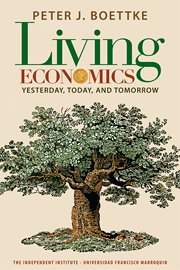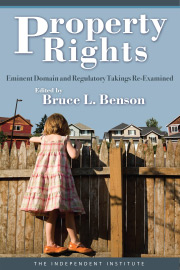When a fellow economist labels someone in the field it is usually because it serves as a short-hand for a set of arguments and beliefs, and/or area of orientation. She is a labor economist, he works in development economics. Those are fields. But she is an experimentalist, or he does behavioral economics. Those are paradigmatic expressions. This is the positive role of labels.
But there is also a negative role played by labels, and it is usually critics that deploy the labels to pigeon-hole a thinker. He is a Keynesian, she is a Marxist, he is an old institutionalist, she is an Austrian, etc., etc. In these instances, the critic is hoping that the label does the job of providing a short-cut path to dismisal of an alternative paradigm within economics.
The first thing that should be stressed in scientific/scholarly discourse is that those of us who have decided to work in scientific/scholarly field of economics (as opposed to the economic policy field and/or popularization of the discipline) want to contribute to ECONOMICS and to have the broadest impact possible on our peers. We want to do good economics, and to see our papers published in the top journals in the profession and to be widely cited by other scientists/scholars within economics. Obviously, very few thinkers in each generation succeed in this scientific/scholary endeavor.
Given the slightly out of sync perspective of both the contributors to, and readers of, Coordination Problem, let me stress that we want to do good economics, publish in the top journals, and be widely cited because (a) that means that the ideas that we so strongly believe are underrepresented in the current practice of economics are gaining wider acceptance, and (b) this is the only way that the scientific/scholarly agenda we are committed to pursuing will actually spread within the society in general. In short, ideas which do not have scientific/scholarly credibility cannot in the long-run win the day in the policy world, or in the popular culture. Dissident ideas must become “mainstream” if they are to cease to be critiques of the status quo, but come to define the status quo.
In my recent book, Living Economics: Yesterday, Today and Tomorrow (2012), I urge the reader to recognize the distinction between “mainline” and “mainstream” economics. Mainline economics, I contend, is defined by the substantive propositions that have been held by economists from at least the time of Adam Smith. In my characterization, those substantive propositions relate to the rational choice postulate, and the invisible hand proposition (and the reconciliation of rational choice and the invisible hand through instituitonal analysis). This is what unites economic thinkers through time from David Hume and Adam Smith, to Mises, Hayek and Buchanan. As Lord Acton once wrote, it is the traveling of the minds of the men who sit in the seat of Adam Smith that deserve serious attention.
On the other hand, mainstream economics I contend is a sociological designation, and refers to what is currently fashionable in the research and teaching of elite professional economists at any point in time. Thus, the term mainstream does not reflect any one set of substantive propositions, but shifts constantly depending on what is the current state of the art among professional economists at the elite scientific/scholarly institutions. Sometimes the mainline is the mainstream, but at other times it is not. It is at this critical junctures when the mainstream deviates from the mainline, that labels become particularly important in aiding acts of intellectual entrepreneurship which attempt to bring the mainstream back into line with the mainline of economic thought. A Property Rights School of Economics was needed in the 1950s and 1960s precisely because the institutionally antiseptic theory of the Samuelsonian neo-classical synthesis had turned a blind eye to the role that alternative institutional arrangement had on economic performance. Public Choice Economics was similarly required to correct for the tendency of this institutionally antiseptic economics of post-WWII to treat economics policy as if it was done in a vacuum rather than emerging within the political process. And, market process theory was needed because the general competitive equilibrium program had squeezed out of the analysis of the market economy the vital role played by the entrepreneur in initiating the dynamic adjustments that follow from arbitrage and also innovation. None of these schools of economic thought are proposing anything unheard of in the history of mainline economics and political economy, but their active intervention in modern economic thought was necessitated by the failure of the then mainstream to remember the core teachings of mainline economics. The novel theories of Property Rights Economics, Public Choice Economics, and Market Process Economics (novel that is if you never read Adam Smith), transformed economic thinking by the 1970s-1980s. And these ideas took on even more significance in the 1990s after the empirical collapse of real-existing communist economies.
But the character of mainstream economics as Samuelsonian in form was never displaced. Mainline ideas that could be readily adapted to the language of Samuelsonian economics had greater traction than those that did not easily fit into that form of scientific/scholarly argument. Thus, we have a slightly separate debate that must be waged—which has its own labels which must be understood. And that is the debate underlying the claim to the mantle of science—the deep waters of epistemology, methodology of economics, and the philosophy of science. Methodology matters because it shapes not only the questions pursued by scientists/scholars, but evenmore importantly determines what is considered a good answer to those questions. Without a shift in perspective over what constitutes the scientific enterprise in economics, various teachings of the mainline of economic thought will be dismissed scientifically even as they get a nod to their wisdom and good sense.
In fact, I have used throughout scientific/scholarly, but in the modern methodology of economics the goal is to be rigorously scientific, the scholarly quest for human understanding is dismissed as insufficient. Thus, the way that the mainstream understands the teachings of the mainline of economics is through an act of translation of the rational choice postulate and the invisible hand propsition into a language which would make those core teachings incomprehensible to the leading practitioners of mainline economics in the 18th, 19th, and early 20th century. Methodology matters.
But remember my point that we want to do Good Economics, and have as wide an impact on our scientific peers as possible. Fidelity to a label should be the least of our concerns, but truth in economics should be the utmost of our concerns. We need to think clearly, write clearly and speak clearly. And our thinking, writing and speaking should be about the mainline teachings of economics and political economy as passed down through the ages by the Scottish Enlightenment Moral Philosophers, the French Liberal Poltical Economists, the British Utilitarians, and the Austrian School Economists (and the subsequent development of economic thought in the second half of the 20th century that drew on these various traditions). To accomplish this task of providing sound theory and clarity of exposition, we rely on exact theory (pure logic of action), institutionally contingent theory (comparative institutional analysis), and empirical analysis (history, policy applicaiton, statisitcal work, ethnography, etc. ). Each step in a complete social scientific analysis has different epistemological problems to be addressed and methodologies of analysis. Confusion results when we fail to remember the distinctions and in the looseness of language blur the distinctions. But that we need the skills of critical reasoning to do sound theorizing, and the skills of empirical analysis to do history should never be doubted. The master economist and political economist does both theory and history.
Mainline economists sought to produce sound argument (not just valid), and thus theory aligned with real world relevance. The mainline economists from Smith to Hayek, did not produce free floating abstractions that were tested against momentary concretes. That was the mistaken path that mainstream economics embarked upon in the second half of the 20th century and continues to plague the practice of economics to this day. So if those of us who find the arguments of mainline economics persuasive want to impact the mainstream of economics and pull in the direction of the mainline teachings of economics and political economy we must engage in methodological debate. We cannot ignore these issues. There is no such thing as philosophy free science, there is only science guided by an articulated and defended philosophy or science guided by an inarticulate and undefended philosophy. We are, in short, in the same position that Mises and Hayek found themselves respectively in the 1920s and 1940s. In order to do Good Economics (defined as advancing and refining our understanding of mainline economics—rational choice; invisible hand; institutional analysis) and to persuade the mainstream practitioners of economics of the merits of this approach, we have to not just do economic analysis but to provide a robust methodological defense of our approach. Methodology matters—even if a preoccupation with methodology should never substitute for doing economics (both theory and history).
Fidelity to a label (especially one that opponents give you) should never be the issue, but fidelity to sound economic argument and careful empirical analysis should be. The value of a label should be high only if it aids in that task, otherwise discard the label and focus on doing Good Economics.











